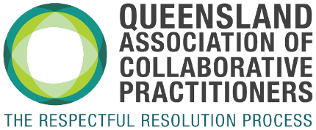All Your Questions Answered
Collaborative practice is an innovative and alternative approach to resolving disputes. If you use the collaborative process, you will work with your lawyer and ex-partner in a co-operative open way to reach a fair settlement.
In the first instance you and your ex-partner and your respective lawyers sign a Participation Agreement which sets the structure within which the negotiations will be conducted. By signing a Participation Agreement you are demonstrating your commitment to resolving your differences in a respectful manner and without court proceedings.
The underlying principles of collaborative practice are to reach agreement through open negotiations while minimising the apprehension and worry that often surrounds the discussion of issues regarding your children’s future and your financial, parental and relationship futures.
Your collaborative lawyer brings with them their skills and expertise in problem solving and negotiating and works with you to reach a solution.
All negotiations are conducted in your presence and so you and your spouse or partner retain full control of your negotiations.
Through court proceedings or litigation to resolve a family law case, you would go through a sequence of court conferences and hearings. This can take many months or most likely years before you have a final trial where a Judge would make a decision as to how your dispute will be resolved.
Through collaborative practice, you, your ex-partner and your respective lawyers work together, sometimes with other professionals such as valuers, accountants and child experts, to find out what each party wants and how that can be achieved. The court is not involved in this process and no documents are filed with the court whilst the negotiations are ongoing. Once you have reached an agreement, you can choose to send that agreement to the court to be made into an order.
No. Not if you are able to reach agreement through the collaborative process.
If you are able to reach agreement through the collaborative practice process then that agreement can be made into a Court Order or Binding Financial Agreement. If you would like the agreement made into a Court Order the paperwork is sent to the court, but it is not necessary for you to actually attend court.
If you are unable to reach an agreement through the collaborative process then it may be necessary for you to commence court proceedings.
In the collaborative process, you and your lawyers communicate with each other through face-to-face meetings as well as telephone conference calls and minimal written correspondence.
In four-way meetings, you all sit down together and identify each party’s issues, concerns and goals and look at ways to shape those into an agreement. These meetings are conducted in an open manner where you all voluntarily provide full and frank disclosure of your position and provide any documents necessary to confirm your position.
By signing the Participation Agreement all parties are agreeing to behave in a respectful manner towards the other. You are also agreeing to be open and honest about your position and provide any documents necessary to confirm that position. If there is doubt as to the truth and accuracy of information then your lawyer can request documentation from an outside party to corroborate what the other party has said. By entering into the collaborative process you generally accept that you will reach a negotiated settlement quicker if you are open and honest.
If you cannot reach agreement, then depending on the issue preventing agreement, we would first seek the assistance of an outside professional such as a child expert, accountant or valuer to assist with resolving the issues.
If, despite the best endeavours of the parties, lawyers and the experts, you still cannot reach an agreement and going to court is the only alternative, then the lawyers and the experts must withdraw from the case.
Your collaborative lawyer will be able to refer you to a lawyer to conduct your case in court for you, but your collaborative lawyer can never represent you in court. They also cannot be witnesses in your court case. The same rules apply to the collaborative experts.
Mediation involves an independent neutral professional who facilitates discussions between the parties and helps you to reach an agreement. The mediator does not provide legal advice to either party during the discussions.
In collaborative practice, your lawyer provides you with advice helps you assess realistic options. The lawyers then support you through the negotiation process to reach an agreement.
Yes. It is a fundamental principle of the Participation Agreement that if the parties involved in the collaborative process are unable to reach an agreement then the lawyers who have been representing those clients must withdraw from the case when the collaborative process is brought to an end and court proceedings are to be commenced. Because neither party can use the threat of commencing court proceedings everyone remains focused on negotiating a settlement.
